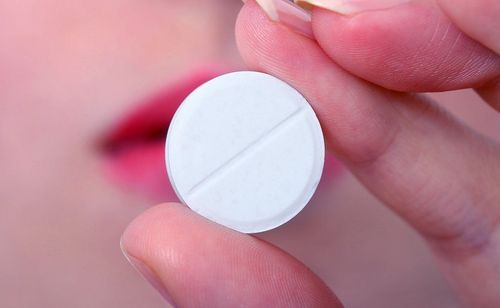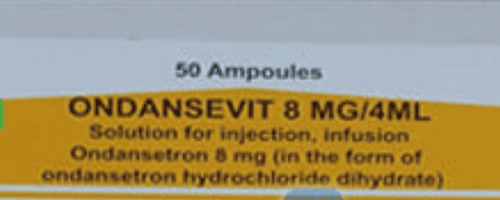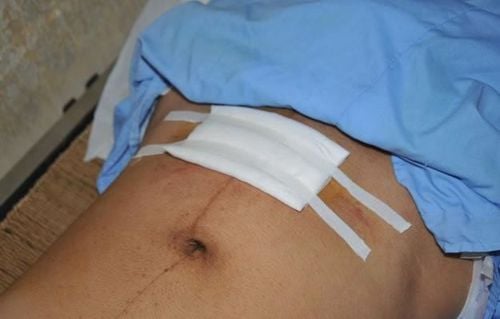This is an automatically translated article.
There are many factors that affect the recovery process after surgery, one of which is nutrition. Because after each surgery, more or less, the patient will lose blood and strength. They will need a really good and reasonable diet to provide enough nutritional needs for the wound to heal quickly and recover quickly.
1. Mistakes slow down recovery after surgery
Mistakes that slow down your post-surgery recovery are:
Doing too much, too soon: too early and too much exercise not only doesn't help with a quick recovery, but it can even affect the body's ability to recover. Should stick to what the doctor instructs to be able to recover quickly after surgery. Stay in bed: Lying in bed can cause a host of problems such as blood clots, pressure ulcers, pulmonary embolism, and weakening of your muscles. Get out of bed when possible, walking will help you reduce fatigue, speed up digestion. Because after surgery, your bowels may work slowly, a little work to help wake up your bowels. Do not take prescription drugs: many people will not use pain relievers prescribed by doctors because they think it can be addictive or cause constipation, nausea,... This is not true. because pain can interfere with sleep, which can make your recovery slower.
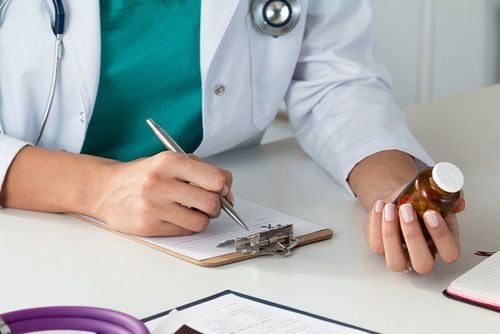
Bệnh nhân không uống thuốc theo đơn của bác sĩ sẽ làm bệnh phục hồi chậm
Skip physical therapy: many people think they can recover on their own, but the reality is that they need to work with a physiotherapist. Physical therapy can help you get stronger and recover more safely. Return to work too soon: working too soon can delay recovery from surgery. It's best to talk to your doctor about how long to rest and when you can return to work. Do not perform breathing exercises: if you have had heart, lung, abdominal or spine surgery, you will be offered exercises to help you recover from anesthesia. Doing breathing exercises is very important, it helps your lungs get rid of the mucus that collects there. Not getting enough food and drink: you may feel nauseous or your bowels won't move, which will put you in the mood to eat. But your body needs refueling. Food will give your muscles energy. When you don't get enough nutrition, your recovery can stall. Therefore, nutrition after surgery plays an important role in recovery after surgery. So what exactly do you eat after surgery? What to fast after surgery?
2. Note the post-surgery nutrition
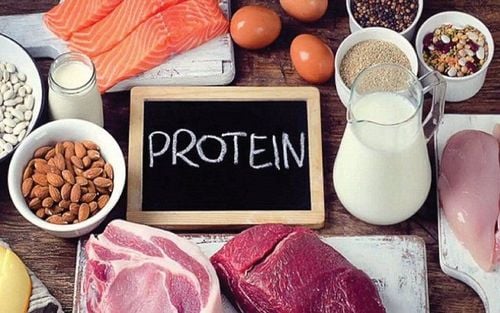
Sau phẫu thuật bệnh nhân cần bổ sung thức ăn chứa nhiều protein
For a surgery to have good results, the patient needs to be well nourished both before and after surgery.
The role of nutrition before surgery is to maximize nutrition for the patient, helping the patient to have enough stamina for surgery.
The role of nutrition in the time of surgery is to ensure the reduction of intestinal waste, reduce intestinal bacteria, especially during gastrointestinal surgery.
The role of nutrition after surgery is to help the patient recover quickly. The general principles of nutrition after surgery are:
High protein diet: this is the most important point, because surgery often causes the body to lose a lot of protein due to bleeding, wounds, inflammation or due to severe burns. High-energy diet: The energy needs of surgical patients need to increase by 10 - 50% and sometimes up to 100% of normal. Diet high in glucide: in addition to providing energy, glucide also helps the liver store a lot of glycogen and has the effect of protecting the liver from damage caused by anesthesia. Maintain a high nutritional diet for at least 1 month for patients with severe malnutrition, sometimes up to 6 months or more in cases of liver transplantation,...
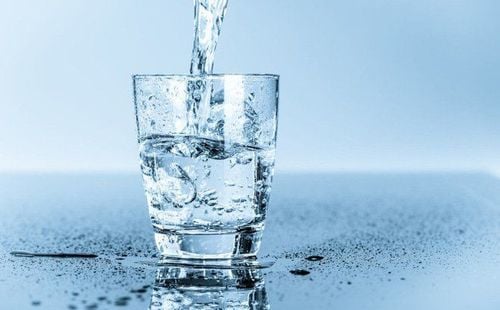
Ở giai đoạn đầu sau phẫu thuật bệnh nhân cần bù nước để đảm bảo đủ lượng calo cần thiết
Nutrition after surgery can be divided into the following stages:
First phase: At this stage, the patient cannot eat, mainly rehydration, electrolyte replacement, and glucose supply to ensure enough calories needed to nourish the body, reduce protein breakdown. Doctors can give patients intravenous fluids such as Glucose 5%, Glucose 30%, NaCl 0.9%, KCl 1 or 2 ampoules. If the patient has abdominal distension, water should not be given. If gastrointestinal surgery is not required, the patient can be given a small drink (50ml 1 hour apart). Drink sugar water, fruit juice or vegetable broth. Can give plasma, blood if needed. The middle stage: 3rd to 5th day This stage needs to be fed to the patient gradually, gradually reducing the infusion. The diet gradually increased energy and protein. Starting from 500 Kcal and 30g of protein. Then 1 - 2 days increase again from 250 - 500 Kcal until the level is set at 2000Kcal/day. For patients to eat milk: should be used in the form of milk mixed with porridge, use buttermilk powder, use soy milk. Can give the patient juice when milk is not available. Divide into several meals a day, 4-6 meals, because the patient is still anorexia, need to encourage the patient to eat. Use foods that contain a lot of vitamin B, vitamin C, PP such as lemon juice, orange juice, etc. Should eat soft foods, limit fibrous foods during this period.

Phẫu thuật được khoảng 3-5 ngày có thể cho bệnh nhân uống nhiều nước cam để bổ sung vitamin C
Recovery phase: At this stage, the incision has healed, the patient's health has improved. Therefore, the diet needs to provide adequate calories and protein to quickly gain weight and help wounds heal. High protein and calorie diet: protein can be from 120 - 150g/day and energy can be from 2,500 - 3,000 kcal/day. Divide the meal into several meals a day (5 - 6 meals/day). Use a lot of milk, eggs, meat, fish, beans to provide enough protein. Eat a lot of fruits to increase vitamin C and vitamins of group B. Some other notes in the post-surgery diet:
The initial parenteral nutrition is very necessary. But early nutrition by gastrointestinal tract is required. This not only helps the patient to be nourished according to normal physiology, is safer, more economical and has the effect of activating the digestive system to return to normal activities soon. If eating by mouth is not enough, you can use a diet through a tube, then gradually feed the patient by mouth. Eat several meals a day, do not feed too much at once to avoid diarrhea. Eat gradually increasing amounts of protein and calories.
If there is a need for consultation and examination at the Hospitals of the National Health System, please book an appointment on the website to be served.
Please dial HOTLINE for more information or register for an appointment HERE. Download MyVinmec app to make appointments faster and to manage your bookings easily.




